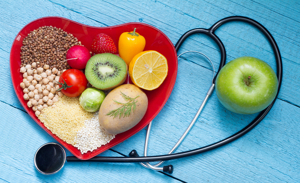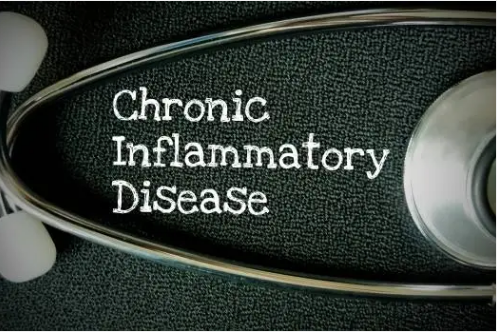1. Lowering Cholesterol and Improving Lipid Profiles
-
Plant-based diets are rich in soluble fiber, plant sterols, and unsaturated fats—nutrients that help lower total cholesterol and low-density lipoprotein (LDL or “bad” cholesterol) levels, which are major risk factors for CVD.1234
-
A meta-analysis showed that people following vegetarian or vegan diets exhibited reductions of 7% in total cholesterol, 10% in LDL cholesterol, and 14% in apolipoprotein B (a cholesterol-carrying protein in the blood) compared to those eating omnivorous diets.4
2. Blood Pressure Reduction
-
Regular consumption of whole grains, legumes, fruits, and vegetables in plant-based diets corresponds with significantly lower blood pressure. These foods are naturally low in sodium and rich in potassium, magnesium, and antioxidants, all of which help maintain healthy blood pressure levels.256
-
Studies consistently find that individuals consuming plant-forward diets have lower rates of hypertension—a key contributor to heart disease and stroke.56
3. Decreased Inflammation and Oxidative Stress
-
Plant-based diets are abundant in phytonutrients, polyphenols, and antioxidants that help reduce chronic inflammation and oxidative stress, both of which play a central role in atherosclerosis (the process that causes arteries to narrow and harden).372
-
Adopting a vegan diet, for instance, has been shown to significantly lower levels of inflammatory markers like high-sensitivity C-reactive protein (hsCRP), which is closely linked to improved cardiovascular outcomes.7
4. Weight and Glycaemic Control
-
These diets are naturally less calorie-dense and higher in fiber, contributing to improved weight control and lower rates of obesity, which is another major risk factor for CVD.89
-
They also aid in controlling blood sugar, further reducing risk for both diabetes and heart disease.91
5. Lowering Harmful Compounds
-
Plant-based diets decrease the intake of saturated fat, cholesterol, and harmful compounds found in red and processed meats (such as heme iron and nitrates), all of which are associated with increased cardiovascular risk.1011
-
They also limit production of trimethylamine N-oxide (TMAO), a compound linked to higher risk of CVD that is produced by gut bacteria when metabolizing foods from animal sources.12
6. Direct Effects on Cardiovascular Risk and Disease Incidence
-
Meta-analyses and cohort studies have shown:
7. Improving Artery Function and Reversing Disease
-
Some evidence suggests that, beyond prevention, plant-based diets can reduce plaque buildup, improve artery function, and in some cases even reverse aspects of heart disease, especially when strictly adhered to.1819
Summary Table: Key Mechanisms
| Mechanism | How Plant-Based Diets Help |
|---|---|
| Lower cholesterol & LDL | High in fiber/sterols, low in saturated fat432 |
| Reduce blood pressure | More potassium, less sodium, antioxidants562 |
| Lower inflammation | High in phytonutrients, fewer pro-inflammatory compounds7 |
| Help with weight control | High fiber, lower energy density89 |
| Improve glycaemic control | Reduce blood sugar, diabetes risk91 |
| Reduce harmful gut metabolites | Less TMAO production, healthier gut profile12 |
| Possible plaque reversal | Lowered arterial buildup, improved function19 |
Adopting a plant-based diet—especially one rich in whole grains, fruits, vegetables, legumes, nuts, and healthy oils—substantially reduces cardiovascular disease risk through a combination of physiological and metabolic improvements. This makes it a powerful preventative (and sometimes therapeutic) tool for heart health.615161712345789101314
- https://pmc.ncbi.nlm.nih.gov/articles/PMC7551487/
- https://www.uclahealth.org/news/article/plant-based-diets-may-be-heart-cardiovascular-wellness
- https://pmc.ncbi.nlm.nih.gov/articles/PMC9787709/
- https://www.health.harvard.edu/heart-health/vegetarian-and-vegan-diets-may-lower-cholesterol-levels
- https://pmc.ncbi.nlm.nih.gov/articles/PMC10224875/
- https://pmc.ncbi.nlm.nih.gov/articles/PMC5466938/
- https://plantbasedhealthprofessionals.com/how-do-plant-based-diets-prevent-cardiovascular-disease
- https://www.mdpi.com/2072-6643/9/8/848
- https://pmc.ncbi.nlm.nih.gov/articles/PMC5579641/
- https://linkinghub.elsevier.com/retrieve/pii/S0002916522008565
- https://pmc.ncbi.nlm.nih.gov/articles/PMC6089671/
- https://linkinghub.elsevier.com/retrieve/pii/S1051227620301321
- https://www.wjgnet.com/2307-8960/full/v11/i20/4752.htm
- https://pmc.ncbi.nlm.nih.gov/articles/PMC10548756/
- https://pmc.ncbi.nlm.nih.gov/articles/PMC6759882/
- https://pmc.ncbi.nlm.nih.gov/articles/PMC10424050/
- https://www.frontiersin.org/journals/cardiovascular-medicine/articles/10.3389/fcvm.2021.756810/full
- http://www.thepermanentejournal.org/doi/10.7812/TPP/12-085
- https://www.bhf.org.uk/informationsupport/heart-matters-magazine/nutrition/ask-the-expert/plant-based-diets
- https://www.mdpi.com/2072-6643/13/11/4144
- https://www.ahajournals.org/doi/10.1161/JAHA.124.035034
- https://www.mdpi.com/2072-6643/11/12/2915
- https://academic.oup.com/nutritionreviews/article/76/4/260/4916885
- http://link.springer.com/10.1007/s12170-007-0003-y
- https://pmc.ncbi.nlm.nih.gov/articles/PMC9963093/
- https://www.mdpi.com/2072-6643/9/8/848/pdf
- https://pmc.ncbi.nlm.nih.gov/articles/PMC8604150/
- https://pmc.ncbi.nlm.nih.gov/articles/PMC11890674/
- https://www.frontiersin.org/articles/10.3389/fcvm.2021.756810/pdf
- https://pmc.ncbi.nlm.nih.gov/articles/PMC10974713/
- https://nutrition.bmj.com/content/early/2023/10/25/bmjnph-2021-000401
- https://pubmed.ncbi.nlm.nih.gov/29496410/
- https://www.heart.org/en/news/2021/08/04/eating-a-plant-based-diet-at-any-age-may-lower-cardiovascular-risk
- https://bmcnutr.biomedcentral.com/articles/10.1186/s40795-024-00839-9
- https://lipidworld.biomedcentral.com/articles/10.1186/s12944-024-02340-5
- https://journals.plos.org/plosone/article?id=10.1371%2Fjournal.pone.0300711
- https://pubmed.ncbi.nlm.nih.gov/37226630/
- https://www.pcrm.org/health-topics/high-blood-pressure
- https://pubmed.ncbi.nlm.nih.gov/36558530/


